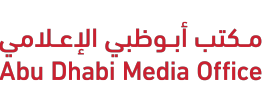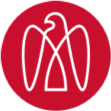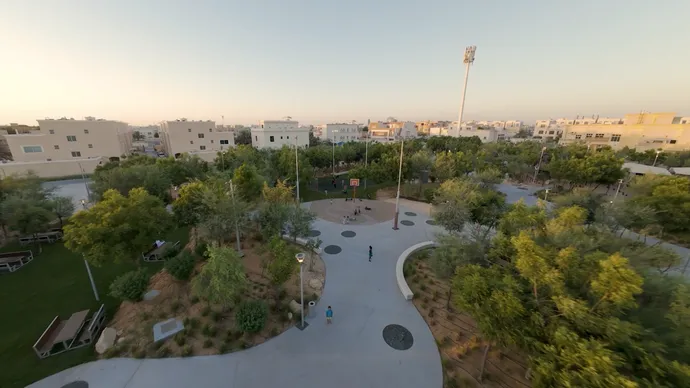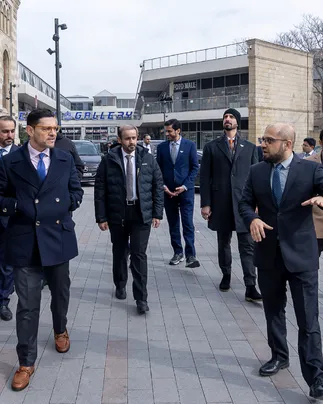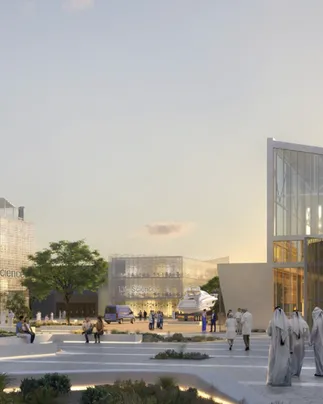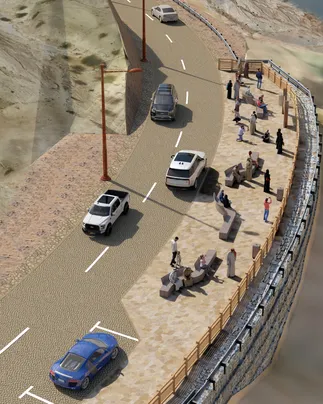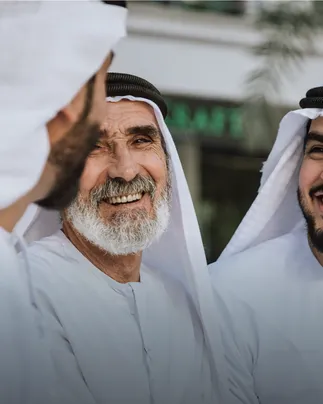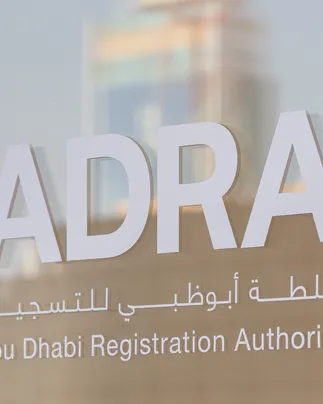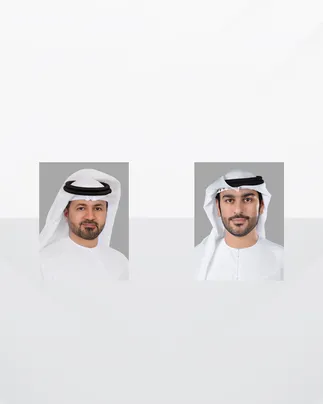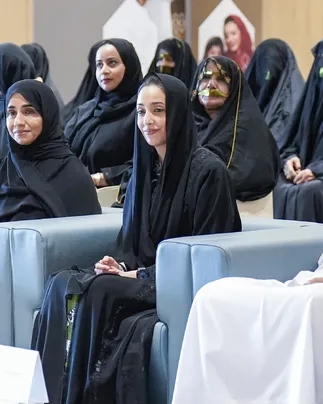The Department of Municipalities and Transport (DMT) has announced the roll-out of a comprehensive two-year transformation programme that saw the DMT successfully redefine its services and operations to improve efficiency, accessibility, and innovation.
Citizens, residents and businesses can now benefit from a more cohesive and simplified service structure that ensures consistent access and delivery across the emirate’s regional municipalities in Abu Dhabi City, Al Ain City, and Al Dhafra Region. This unified framework enables users to receive high-quality services, either in person or through the TAMM platform.
His Excellency Mohamed Ali Al Shorafa, Chairman of the DMT, said: "Our focus has always been clear - to place people at the centre of everything we do. This transformation reflects that ethos by ensuring that our services are accessible, responsive, and truly tailored to meet the diverse and evolving needs of our emirate’s growth aspirations. We remain driven to delivering consistent value, ensuring every individual and organisation feels supported and empowered.
“This organisational realignment underscores our steadfast resolve to advancing Abu Dhabi’s position as a public sector leader. More than 8,000 people from across DMT and its affiliates joined forces to bring this ambitious vision to life, showcasing how the power of collaboration serves as the engine that propels the emirate’s progress and liveability standards."
Empowering Community Planning programme: Throughout the programme, the DMT has focused on enhancing liveable communities through comprehensive urban planning that effectively allocates land usage, thus fostering sustainable development and community well-being.
A key milestone in this effort has been the successful completion of the Abu Dhabi Liveability Strategy’s first phase that was announced just last month. The results of which led to the approval of an AED 42 billion budget for a range of new projects under the Department’s supervision.
Since its introduction in 2023, average district completion scores have increased from 67 per cent to 81 per cent in 2025—demonstrating measurable progress in enhancing quality of life across the emirate. Building on this, the DMT is also integrating community insights into urban planning and policy decisions to better meet the population’s evolving needs.
By engaging a wide range of stakeholders - encompassing individuals and organisations - through workshops and surveys like the Dream Neighbourhood Survey, the Department ensures that everyone who lives, works, and invests in Abu Dhabi has a space to thrive.
Reshaping Real Estate for Growth: In parallel during 2023, the DMT consolidated all municipal real estate functions into a central entity, streamlining over 250 services into less than 100 through the establishment of the Abu Dhabi Real Estate Centre (ADREC).
Since then, ADREC has advanced the emirate’s property market by attracting domestic and foreign investment, fostering economic prosperity. Key achievements include the launch of Abu Dhabi’s first official residential Rental Index as well as the centralised listings platform Madhmoun to increase transparency within the real estate market.
Additionally, the Centre reported a 24 per cent increase in real estate transactions in 2024 with a total value of AED96.2 billion. This positive momentum extended to Foreign Direct Investment (FDI), which attracted over AED7.86 billion over the course of the year. In Q1 of 2025, FDI activity remained strong, with 384 transactions recorded with a total value of AED1.582 billion.
Elevating Urban Excellence in Infrastructure: The Department reinforced its strategy for capital infrastructure by adopting a value chain model that supports financial resilience, workflow optimisation, and improved delivery outcomes across the emirate. This integrated model spans all stages of a project—from planning and design to construction, partnerships, ongoing maintenance, and management—ensuring alignment with government priorities while maximising long-term value.
A key element of this enhanced oversight is the continuous review and prioritisation of major proposals, which are guided by current and future needs to guarantee that resources are directed where they are most impactful. To further drive productivity, the DMT has adopted advanced digital tools and smart technologies, enabling real-time monitoring, predictive planning, data-driven decision-making, and seamless coordination among stakeholders to improve visibility, accountability, and overall results.
Reinforcing Compliance and Building Safety: Alongside its ongoing efforts to improve infrastructure, the Department has enhanced the management of building permits and occupancy certifications across the emirate.
The Building Occupancy and Legalisation Certificate Programme, established under Administrative Decision No. (1) of 2024, provides a clear framework to raise building standards and safety. Implemented in three stages, beginning with the issuance of a Conditional Occupancy Certificate focused on critical safety criteria, the programme encourages gradual compliance while protecting real estate investments and fostering transparency and trust within the property market.
The Department’s Binaa platform is already delivering significant benefits to construction industry stakeholders and property owners. By integrating technologies such as Building Information Modelling (BIM), artificial intelligence, and virtual and augmented reality, the platform has enabled more efficient municipal checks and reviews — reducing processing times by 70 per cent across Abu Dhabi.
Harnessing AI for Smarter City Management: In line with its commitment to shaping future-ready cities, the DMT and its affiliates have continued to steadily embed artificial intelligence into urban planning, mobility, and service delivery.
In 2023, the Department launched Smart AI Inspection Vehicles—mobile units designed to autonomously detect waste, litter, and maintenance issues in real time, enhancing the efficiency of city services and contributing to cleaner public spaces. The following year, the focus expanded to include intelligent planning tools, such as the City Management – Liveability through Digital Twin and AI Technologies project, featuring a dynamic 3D model that visualises liveability scores and enables predictive planning.
More recently at GITEX 2025, the DMT unveiled LivAI, an evolved version of its liveability platform, which was complemented by the launch of City Eye, an AI-powered operational framework that uses predictive modelling and voice-command features to enhance city management and emergency response times. In the mobility space, a new Real-time Intelligent Traffic Safety Management System (RITSMS) was introduced by the Integrated Transport Centre (ITC), featuring an AI-powered Interactive Safety Map that tracks crash hotspots and forecasts road risks to help reduce traffic incidents.
Completing this year’s showcased innovations is the Smart Inspection Robotics—a smart robot designed for autonomous inspections and maintenance in parks and recreational areas, further advancing AI’s role in responsive urban operations.
Empowering Municipal Services and Operations: Building on more than five decades of dedicated service and city operations, the municipalities of Abu Dhabi City, Al Ain City, and Al Dhafra Region continue to enhance and expand services that address the essential needs of residents, including maintaining parks and beaches, preserving the emirate’s image, and enforcing public health standards.
As part of DMT’s reorganisation, operations have been streamlined further with standardised services that ensure a unified customer experience across Abu Dhabi. Another strategic outcome was a strengthened commitment to placing the community at the heart of its initiatives, which resulted in the expansion off Al Tawajud Al Baladi Centres.
So far, 17 centres were opened, with plans for more to be open in the future, to enable open dialogue with the government to actively engage communities in the decision-making process.
Advancing Mobility Solutions for the Future: In 2024, during the Department’s transformation programme, the ITC introduced ‘Abu Dhabi Mobility’ as a new brand to coincide with an expanded regulatory mandate that now covers land transport, aviation, and maritime, as well as driver and vehicle licensing operations.
Last year, Abu Dhabi’s public transport network recorded over 90 million bus rides, more than 168,000 water transport passengers, and over 28 million air travellers. This progress was further demonstrated with the opening of new ferry terminals at Al Aliah Island, Saadiyat Marina, and Rabdan Marina to improve access and connectivity across the emirate’s marine transport network.
Smart mobility efforts have also advanced with the expansion of autonomous taxi services to Al Reem and Al Maryah Islands, thereby covering nearly half of the City’s key areas.
Furthermore, the ITC is accelerating the transition to clean mobility by facilitating the installation of 1,000 electric vehicle charging stations at 400 locations across Abu Dhabi Island, Al Ain, and the Al Dhafra Region, with expansion plans in line to meet growing demand and a goal for EVs to comprise 50 per cent of all cars by 2040.
It has also unveiled a strategy for Abu Dhabi to become a Public Transport Green Zone by 2030 by converting half of its public transport fleet to hydrogen and electric-powered buses through its Green Bus Programme.
